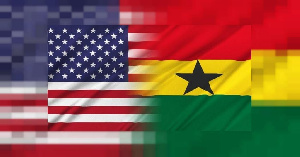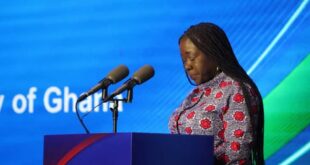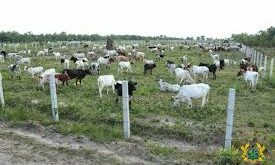As Americans went to the polls last week to decide who will be their executive president for the next four years, lots of Ghanaians followed the voting as closely as if had been for the election of their own leaders.
This was for good reason; not only is the United States major business and economic development partner of Ghana’s but as the largest economy in the world, its influence on global economic trends and trajectories is truly huge.
However, just as with their domestic elections, Ghanaians were being driven more by sentiments than by hard data and facts in making their choice as to whom they wanted to win today’s United States Presidential election.
Most Ghanaians have sided with Joe Biden, the former Vice President of the United States during the Barrack Obama administration. The reasons are altogether expected. Now they seem to have got their way, with Joe Biden sweeping to victory in a closely contested election.
Biden was the vice presidential choice of the first African American to occupy the Oval Office and indeed, African American’s in general are solidly behind him led of course by former President Obama himself. On the other side of the divide was incumbent President Donald Trump, who has been painted as a racist by America’s political class, a colouring which he helped with himself when he described African countries as “shit hole” countries in 2017.
Ghanaian’s natural inclination towards Biden is intensified by the goodwill shown towards Africa – and Ghana in particular – by the Obama administration, which reflected in several economic assistance programmes and in Obama’s choice of Ghana as one of the first places he visited upon assumption of office. Conversely, their personal dislike of President Trump has been intensified by the visa restrictions thrown on Ghana in February 2018, in America’s reaction to the African country’s disputing the citizenship of some alleged Ghanaians who were being deported at the height of the Trump administration’s clamp down o0n illegal immigrants.
To be sure, Trump’s often hostile rheotic against Africans, Ghanaians inclusive have been supported by actual unfriendly public policy action. For instance, over the past couple of years, American assistance to Ghana channeled through the State Department and the United States Agency for International Development has been cut considerably; from US$143 million in 2018 to an approved allocation of US$74.0 million in 2019 and just US$62.8 million in 2020.
Similarly, special economic assistance programmes by the US for Ghana have suffered budgetary allocation cuts to. Thus programmes such as the Young African Leaders Initiative, Power Africa, and the likes have been down-scaled.
Actually, the budgetary cuts could have been deeper if not for bipartisan support for US economic aid to Africa on both Capitol Hill, in the form of congressional support and at the State Department where career diplomats have stood up for African beneficiaries of American largesse. However that support has ensured that no economic assistance programmes inherited by the Trump administration have been thrown out altogether.
But using this to paint a picture of friendliness versus hostility among Ghanaians with regards to who they should support would not only be simplistic; it might actually be outright wrong.
The true situation is that The Trump administration has adopted a deliberate strategy of replacing aid with trade and investment opportunities between the two countries. Most instructively, it has replaced the Overseas Private Investment Corporation with the (International) Development Finance Corporation, a state institution with twice the size of OPIC’s upper limit on investments abroad, this having been raised from the erstwhile US$29 million to US$60 million. Instructively Africa remains the biggest beneficiary of such investments.
This is part of a wider initiative by the Trump administration which it calls Prosper Africa which aims to significantly grow trade and investment flows between the two continents and Ghana’s failure to benefit from this initiative cannot be blamed on the US alone; Ghanaian exporters have been inconsistent in their attempts at winning American markets, peaking at US$779 million in 2011 but falling to US$574 million by 2018, a year in which total two way trade between the two countries was US$1.3 billion, but leaving Ghana with a US$195 million trade deficit.
When accused of replacing direly needed development aid with trade and investment flows between two very unequal partners – which could cost Ghana dearly – US officials have pointed out that this is in line with the country’s own national vision of Ghana beyond aid.
Interestingly, the Ghana beyond aid mantra has reportedly resonated among Trump administration officials whose leader has loudly advocated that every country should – just like him –prioritize themselves rather than any bilateral or multilateral goals.
None of this though made Donald Trump nearly as intensely supported in Ghana as Joe Biden on US election day.
Biden wants an America that resumes its leadership of global multilateralism and this means aid rising again alongside increasing trade.
But this may not necessarily mean an immediate return to pre-Trump levels of bilateral aid from America. Democratic party legislators have been pushing for major increases in economic stimulus spending for small businesses and lower- and middle-class households and with Biden in the White House, they will have their way.
But even America does not have the financial wherewithal to implement a new US$2.2 trillion domestic stimulus package and at the same time raise its economic aid to needy emerging market economies back to their previous levels. However, Biden could be expected to leverage on Trump’s new initiatives to increase trade to give countries like Ghana with a lift.
Importantly, this approach would be given further impetus by Biden’s expected efforts to restore American influence in Africa in response to China’s aggressive expansion across the continent with regards to economic relations. Indeed Africa will be a major economic battlefield between the world’s two biggest economies as they take a step back from the direct trade war between each other.
This represents a major opportunity for Ghana, which is a major target of China’s because of its natural resources. Ghana would be smart to play one against the other where possible in order to secure infrastructure deals, replete with credit financing on concessionary terms.
Ultimately Ghana stands to gain from increased trade with America as promoted by the Trump administration over the past four years while also benefitting from a partial return to the economic aid it was receiving up to the end of the Obama administration. Put together this may mean bigger economic relations with America than ever before.
Source: Goldstreet Business
 Home Of Ghana News Ghana News, Entertainment And More
Home Of Ghana News Ghana News, Entertainment And More





